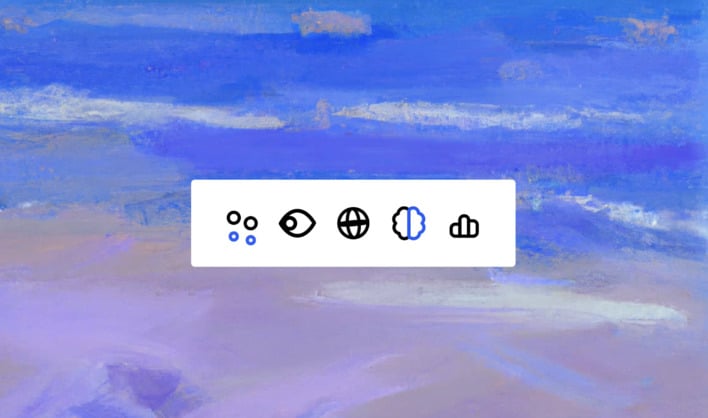Orion: The Next Giant Leap in AI Innovation
As we approach the end of 2024, the anticipation surrounding OpenAI’s upcoming model, codenamed Orion, reaches a fever pitch. Slated for release in December, with early access granted to select partners, Orion is poised to be a pivotal development in the realm of artificial intelligence. However, OpenAI’s CEO, Sam Altman, has tempered expectations by refraining from firm commitments regarding the timeline.
 OpenAI’s next step in AI development: Orion.
OpenAI’s next step in AI development: Orion.
If the reports are accurate, Orion could redefine the capabilities of AI as we know it. Tadao Nagasaki, an executive at OpenAI Japan, hinted at capabilities that could be 100 times more advanced than those of its predecessor, GPT-4. This significant leap could unlock applications across a multitude of sectors, accelerating the integration of AI technologies into everyday business and life practices. As industries increasingly lean on AI, the potential for transformative progress could be unparalleled.
Yet, with such advancements come challenges. The operational costs and energy consumption associated with running advanced AI systems could present barriers to widespread adoption. Additionally, one lingering question is how the training methodology may affect the model’s performance. It is suggested that Orion has been developed utilizing OpenAI’s o1 model, which emphasizes synthetic data. This raises potential concerns about increased hallucinations in the model’s output as well as its tendency to reflect biases inherent in the AI-generated datasets it has been exposed to. Determining whether these elements will prove problematic remains to be seen.
The Future of Business AI Agents
Turning our gaze from OpenAI’s innovations, one notable voice in the field of AI is Salesforce CEO Marc Benioff. In a recent podcast, he expressed unparalleled enthusiasm about the emerging capabilities of AI agents—autonomous entities capable of reasoning, planning, and executing tasks on behalf of businesses. Benioff asserts that we are on the cusp of delivering AI solutions that provide unprecedented levels of success to customers, fundamentally transforming how enterprises operate in the digital space.
“We’re going to do this in a large-scale way and give customers a level of success with AI that they’ve really never had before,” he declared emphatically.
This sentiment reflects a broader narrative: AI is not merely a tool but a revolutionary partner that can augment human work. Benioff’s vision emphasizes collaboration between AI agents and humans, aiming to improve efficiency in diverse areas such as healthcare and customer service. The implications of his insights highlight a future where AI not only supports but enhances human capabilities, fostering a new era of productivity.
 Salesforce’s vision of AI in business.
Salesforce’s vision of AI in business.
Comparing Innovations: A Critique of Current Offerings
Benioff also did not shy away from critiquing Microsoft’s AI initiatives, particularly their Copilot feature. Drawing parallels to the infamous Clippy assistant, he challenged Microsoft’s contributions to the AI landscape, claiming they have tarnished AI’s reputation by delivering lackluster outcomes shrouded in security issues.
In his view, the true value of AI lies in its potential as a partner in business, rather than a simple assistive tool that falls short of expectations. His remarks illuminate an ongoing debate in the sector regarding the efficacy of current AI assistants versus the promise of future developments.
The Collaborative Future of AI
Benioff’s visions for the future of AI underscore a pivotal belief: only through collaboration can AI and humanity harness their collective strengths. In sectors such as healthcare, AI agents could take the reins on follow-up tasks and set appointments tailored to individual patient needs, transforming patient care. From enhancing customer experiences to streamlining operational workflows, the potential applications seem limitless.
Looking ahead, Orion and similar models like Salesforce’s envisioned AI agents represent more than just incremental improvements; they herald a potential paradigm shift in how we understand and implement technology in our lives.
Conclusions and Implications
In conclusion, the future of AI, as embodied by advancements like OpenAI’s Orion and Salesforce’s AI agent initiatives, holds promising outcomes tinged with challenges. The quest for Artificial General Intelligence (AGI) continues, raising questions about the relationship between technology and society at large.
The enthusiasm from prominent figures like Benioff and the significant developments at OpenAI reiterate a reality: AI is here to stay, and its evolution will shape the contours of our lives in ways we are only beginning to understand. With each step forward, there’s a collective hope that these technologies will empower rather than detract from the human experience, weaving AI into the very fabric of business and daily life. The world watches with bated breath as these developments unfold, setting the stage for transformative change in the months and years to come.
Further Reading
- Is the world ready for autonomous AI? Salesforce CEO Marc Benioff makes the case for agents
- Explore more about the latest in AI at OpenAI.


 Photo by
Photo by 











